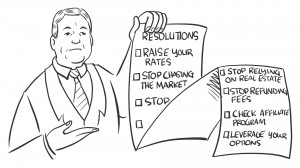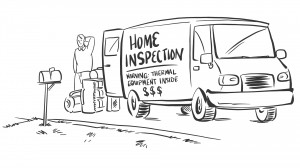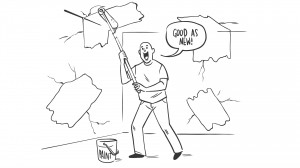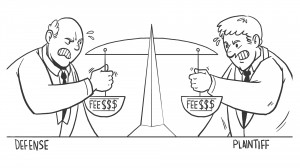Home Inspectors: Here Are Your New Year’s Resolutions
 First, let’s get the “Happy New Year!” salutation out of the way. My team and I wish you the very best in 2017. I suggest you follow these New Year’s resolutions to get the most out of your business and make the best use of your time in 2017. 1. Raise your rates: This is something I learned in my first job at a Philadelphia “white shoe” law firm. On January 1, every lawyer’s hourly rates increased by $10 or $15. I still implement this practice to this day. Every business raises its rates for “inflation”, and you should too. 2. Stop chasing the market down: Stick to your guns. If you continually lower your rates to match the competition, you are supporting the notion that one inspector is as good as another. You know that isn’t true. Cheap Charlie is cheap for a reason. So instead of lowering your business to that level, provide value-add reasons why your product is worth more. Watch this video to discover other New Year’s resolutions you should implement in 2017. (more…)
First, let’s get the “Happy New Year!” salutation out of the way. My team and I wish you the very best in 2017. I suggest you follow these New Year’s resolutions to get the most out of your business and make the best use of your time in 2017. 1. Raise your rates: This is something I learned in my first job at a Philadelphia “white shoe” law firm. On January 1, every lawyer’s hourly rates increased by $10 or $15. I still implement this practice to this day. Every business raises its rates for “inflation”, and you should too. 2. Stop chasing the market down: Stick to your guns. If you continually lower your rates to match the competition, you are supporting the notion that one inspector is as good as another. You know that isn’t true. Cheap Charlie is cheap for a reason. So instead of lowering your business to that level, provide value-add reasons why your product is worth more. Watch this video to discover other New Year’s resolutions you should implement in 2017. (more…)

 A California home inspector recently sent me an email inquiring about thermal imaging’s place in the industry, but more importantly, my legal perspective on whether the new “x-ray vision” opened up another dimension of legal liability for the inspector.
A California home inspector recently sent me an email inquiring about thermal imaging’s place in the industry, but more importantly, my legal perspective on whether the new “x-ray vision” opened up another dimension of legal liability for the inspector.
 Home inspectors often observe that putting everything in their spouse’s name would make them financially insolvent and protect them against greedy, reckless clients searching for financial blood.
Home inspectors often observe that putting everything in their spouse’s name would make them financially insolvent and protect them against greedy, reckless clients searching for financial blood. A home inspector who serves on his state’s licensing board told me that 6% of the licensed inspectors in that state had claims brought against them and that 90% (yes, 90%) of those claims had merit.
A home inspector who serves on his state’s licensing board told me that 6% of the licensed inspectors in that state had claims brought against them and that 90% (yes, 90%) of those claims had merit. A home inspector I’ve known for several years came up to me at an industry workshop with an issue: he had received a demand letter from a past client for failing to detect mold.
A home inspector I’ve known for several years came up to me at an industry workshop with an issue: he had received a demand letter from a past client for failing to detect mold. Many home inspectors have little faith in the legal system, and as an attorney in this professional space, I can see why. They believe (nearly 100% of the time rightfully so) that they are being wrongfully sued, poorly defended and thrown under the bus to the tune of an expensive deductible and a professional black mark.
Many home inspectors have little faith in the legal system, and as an attorney in this professional space, I can see why. They believe (nearly 100% of the time rightfully so) that they are being wrongfully sued, poorly defended and thrown under the bus to the tune of an expensive deductible and a professional black mark. Home inspectors are EASY targets. It’s a sad fact that many home inspectors are victims of meritless claims while receiving little assistance of those they thought could be counted on: their insurance company.
Home inspectors are EASY targets. It’s a sad fact that many home inspectors are victims of meritless claims while receiving little assistance of those they thought could be counted on: their insurance company. Can anyone alter a contract even if they aren’t the company that drew it up? Absolutely.
Can anyone alter a contract even if they aren’t the company that drew it up? Absolutely. A Massachusetts home inspector recently asked me if he could rely on the information posted in the seller’s disclosures or responses provided by the seller or the seller’s representative to specific questions about the property.
A Massachusetts home inspector recently asked me if he could rely on the information posted in the seller’s disclosures or responses provided by the seller or the seller’s representative to specific questions about the property.